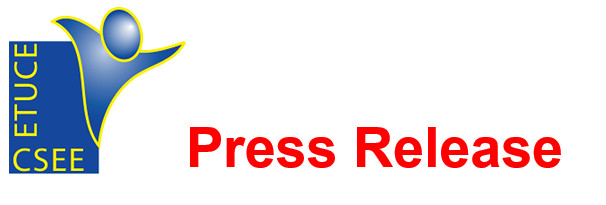
ETUCE still has concerns on the new Copyright Directive after the preliminary voting in the European Parliament
Date
Sections

On June 20th 2018, the Committee on Legal Affairs (JURI) of the European Parliament voted to support the Draft Copyright in the Digital Market Directive. ETUCE welcomes that EU Commission recognizes the importance to widen “opportunities to use copyrighted materials in education, research and cultural heritage” as well as to facilitates “more cross-border access to content online” and as result will implement an EU-wide copyright exception for education and research purposes as well as an exception for Text and Data mining.
ETUCE is, however, concerned that the current draft Directive will weaken exceptions, create more barriers and disproportionally undermine citizen’s user rights in favour of the interest of commercially driven actors. Education trade unions, teachers, academics and researchers have continuously warned about the negative impact of the suggested reforms. As it stands, the current proposal will assert private actor control over how citizens in Europe share, communicate, learn and create knowledge and creative work on the internet – all detrimental to freedom of expression and democratic dialogue.
In advance of the vote in the JURI Committee ETUCE, EFFEE and COMMUNIA launched a joint statement to draw attention to the major issues related to Article 4 on education of the Directive. ETUCE is particularly concerned about how the current draft promotes copyright legislation that will undermine students’, teachers’, school leaders’,
academics’ and researchers’ right to fair use of works for education and research purposes. It will also create barriers for educational cross-border collaboration and exchange in Europe.
ETUCE encourages the members of the European Parliament to take a more balanced position than the JURI Committee and adequately defend the interests of European citizens’ user rights. For the following reasons, ETUCE rejects the current draft for the education exception and calls on the EU Parliament to take the necessary steps to ensure that the user rights of European citizens are taken seriously:
#1: Defend a genuine EU-wide exception without license opt-out: It is surprising that the EU does not recognise the importance to establish a genuine copyright exception for education and research purposes. The exception in the Marrakesh Treaty and in other directives are often protected from license override. Education as a human right deserves the same treatment as licenses can restrict the fair use of creative works. They do not only often limit the scope of exceptions, but also create legal barriers for collaboration across borders, increase legal uncertainties and the workload for teachers. Instead of relying on a single piece of legislation, teachers need to familiarise themselves with different contractual conditions. In addition licensors often impose burdensome bureaucratic report mechanisms on teachers and increasingly force education institutions to control and report copyright infringements when they should actually only inform about copyright legislation. It is for a good reason that the European Court of Justice ruled a case against license priority in 2014 (C‑117/13).
#2 Don’t limit the exception to secure online networks: The education exception is still limited to “secure online environments” which would, for instance, exclude email conversations that are exchanged for educational purposes when private email addresses of parents and students are used.
#3 Social dialogue: Finally it needs to be ensured that social partners are consulted in the national implementation of the EU copyright directive. The selection of works for teaching and learning as well as related quality assurance measures need to take place at national level, as this is an exclusive national competence of Member States.
We look forward to the final voting in the European Parliament on 4th July 2018 taking into account our concerns and proposals in the interest of education as a public good.
Because of all of the above, we urge you to vote for a public debate on the Directive and, therefore, against the negotiating mandate.
